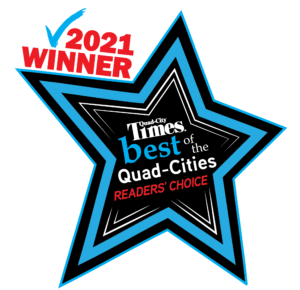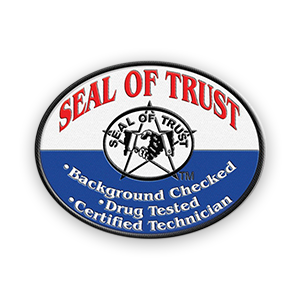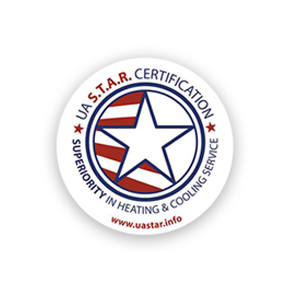FAQ’s & Helpful Tips
Common Questions & Answers about TMI
What services does Total Maintenance, Inc. offer?
Total Maintenance, Inc. provides comprehensive HVAC services including heating and air conditioning repair, maintenance, and replacement. Our expert technicians are equipped to handle all your HVAC needs efficiently.
How can I schedule an appointment with Total Maintenance, Inc.?
Scheduling an appointment with Total Maintenance, Inc. is easy. Call us at IA 563-355-8686 or IL 309-799-8018. You can also book an appointment online by visiting our website at www.tmiservices.net.
Common Questions and Answers About Services and Repairs
What should I do if my HVAC system breaks down after hours?
We offer emergency HVAC services for breakdowns outside of regular business hours. Call our emergency hotline for immediate assistance to get your system up and running again.
How often should my HVAC system be serviced?
To maintain optimal performance and efficiency, we recommend servicing your HVAC system at least once a year. Regular maintenance can extend the lifespan of your system and prevent costly repairs.
What are the common causes of HVAC system failures?
Common causes of HVAC system failures include aging equipment, dirt and inefficient filtration, improper installation, and lack of regular maintenance.
Common Questions and Answers About Maintenance Plans
What are the benefits of enrolling in a maintenance plan with Total Maintenance, Inc.?
Our HVAC maintenance plans offer regular inspections and tune-ups, priority service, and discounts on repairs and replacements. These benefits ensure your system runs smoothly and helps prevent unexpected breakdowns.
How can I sign up for an HVAC maintenance plan?
Signing up for a maintenance plan is simple. Contact our office, and our team will provide all the details and assist you in choosing the best plan for your needs.
Common Questions and Answers About Pricing and Payments
What is StraightForward Pricing®?
StraightForward Pricing® is our transparent pricing model where we provide upfront costs for all HVAC services before any work begins. This ensures no hidden fees or surprises, giving you peace of mind.
Do you offer financing options for HVAC services?
Yes, we offer flexible financing options to make our HVAC services affordable for everyone. Contact our office for more information on our available financing plans.
: What payment methods are accepted at Total Maintenance, Inc.?
We accept various payment methods including cash, checks, and all major credit cards. Additionally, we offer financing options for larger HVAC projects.
Common Questions and Answers About Warranties and Guarantees
What warranties do you provide on your HVAC services and equipment?
We offer comprehensive warranties on all parts, materials, equipment, and labor. If a repair fails within the first year, we will fix it at no additional charge. For new installations, we guarantee system performance or we will remove it and refund your investment.
What is your satisfaction guarantee?
We guarantee 100% satisfaction with our HVAC services. If you are not completely satisfied, we will refund your money. Additionally, if our technicians smoke, swear, are not drug-tested, fail to wear shoe covers, or leave without cleaning up, you do not pay for the service.
Common Questions and Answers About Energy Efficiency
What are the advantages of installing energy-efficient HVAC systems?
Energy-efficient HVAC systems can reduce your energy bills, enhance indoor comfort, and lower your carbon footprint. There are also potential rebates and incentives available for choosing energy-efficient options.
How can I improve the energy efficiency of my current HVAC system?
To improve the energy efficiency of your existing HVAC system, ensure regular maintenance, upgrade to a programmable thermostat, seal ducts, and ensure proper insulation.
Common Questions and Answers About Contact Information
How can I contact Total Maintenance, Inc.?
Reach out to us at IA 563-355-8686 or IL 309-799-8018, or visit our website at www.tmiservices.net Our team is ready to assist you with all your HVAC needs.
24 Hour Emergency Repair Service in the Quad Cities
If you have a plumbing, heating, or air conditioning emergency in Davenport, Bettendorf, Rock Island, Moline or in the surrounding areas, know that when you call TMI you will talk to a live person who will locate the closest available plumber to respond to your emergency quickly. Our technicians are cell phone dispatched and have their fully stocked service vehicles standing by to quickly respond to your needs 24/7. Call us today for your emergency needs: 1-800-383-2813.

A Trusted Company
Since 1973, TMI has been providing reliable heating, air conditioning, plumbing and appliance related services in Eastern Iowa and Western Illinois. We are committed to delivering honest and exceptional customer service. Thank you for your business and the opportunity to work with you!






